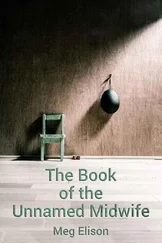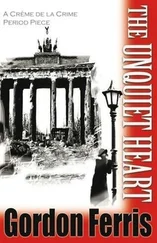She went to the bed and began to move him physically as if he were a child. She turned him over and undid his belt and removed his pants and boxers and unbuttoned his shirt, all with little help from him. He was soon lying on the bed naked. She applied a coat of Vaseline to his face and neck and then to his genitals because Vaseline helped with both the chafing and the cold. Then she began to dress him in what she had collected, finishing with the wicking socks and his waterproof boots. She placed the alpine pack in the doorway where it could be grabbed easily on his way out and then she crawled onto the bed beside him.
“No Bagdasarian this time,” he said. “No doctors of any kind.”
“Okay,” she said.
“I mean it,” he said. “I got off that gerbil wheel and I’m not getting back on.”
“Okay, Tim.”
She reached out for the remote and turned off the late show.
“Have I taken you for granted again, Jane?”
A powerful silence settled over them. He lay on his back as overdressed as a child ready for the winter snow. She watched him from her pillow. His eyes were not as wide and his breathing had calmed.
“Let’s not do this,” she said.
“Do what?”
“Start in with the guilt and the regrets.”
He turned to her. “Have I taken you for granted?”
“Everyone takes everyone for granted,” she said. “It’s a clause in the contract.”
“How do you take me for granted?”
“How? In so many ways, Tim.”
“Name one.”
“I can’t even begin,” she said. “Okay, for one. The best vacation we ever took and for the life of me I can’t remember the name of the island.”
He began to smile. “Scrub Island,” he said.
“I depend on you for that.”
“That’s different than taking me for granted.”
“Scrub Island,” she said. “It was such a clean place, the name makes perfect sense. But I can never remember.”
“Wouldn’t you like to go back?” he asked.
“I thought Africa was next.”
They both knew there was no next, not now, not any time soon, and the silence returned.
“We should buy a place on Scrub Island,” he said. “There was such delicious food there. And do you remember the little girl walking the streets in a wedding dress?”
“She’d be grown by now.”
“And the ostriches. That man herding them with a bullwhip. Don’t you want to go back?”
“Yes,” she said. “When you’re well again, we’ll go back.”
“I’m hot,” he said.
She got off the bed and opened both windows. The winter’s crisp, shocking reality blew in. She turned back toward the bed. Then she remembered the handcuffs.
She walked over to his nightstand and removed them from the drawer. “What about these?” she asked, standing over him at bedside.
He pulled his stare from the unfocused void into which he had lost himself. He looked at the cuffs mournfully, as if they belonged to someone whose death had come on suddenly, and now he was taking stock, with great reluctance, of what to keep and what to throw away. He pursed his lips and shook his head and resumed looking at the ceiling. She put the cuffs back in the drawer.
Her sleep was fitful, responsive to every turn he took, the slightest shift. She woke up when she heard Becka come home, and later when Tim began to whistle — he never snored, but when he lay on his back his heavy breathing turned to a tuneless whistle. Their room was insanely cold, she could see her breath in the moonlight between episodes of some surreal dream, but Tim had not even bothered to get under the covers. He lay on the bed dressed for the subzero weather in coat and gloves. She woke every hour that never-ending night, sometimes more than once, and every time she reached out for him to make sure he was there.
It has been a good, long run, she thought.
When the dimmest fraction of darkness gave way to daylight, she opened her eyes and found him gone. She was furious with herself. Yet what could she have done but let him go?
She dressed quickly and left the house, walked down the long drive to the gate, and stood at the entrance looking in both directions. Their neighborhood had been developed to preserve the natural landscape, so that certain houses were set back on hills, some had small ponds out front, and all were safely buffered by trees. Late at night within the limited view of the headlights you could almost believe you were in the country. At the crack of dawn, with everything caught in the interminable cold snap, she found the street empty and quiet. Too early for the brave morning walkers, even for those neighbors who worked in the financial sectors. The black trees all around her stood with their sharp naked branches like burnt-out dendrites. She scanned for footprints in the snow, then returned up the drive.
She got inside the car and rounded the cul-de-sac. Braking at the gate’s edge to look both ways, she was gripped by a familiar fear. She did not know which way to turn. He had forgotten to turn on the GPS. She pounded the steering wheel with her open palms.
Anger with God was a tired and useless emotion, anger with God was so terrestrial and neutering. She thought she had arrived at a peaceful negotiation but in fact it was only a dormancy and when her anger at God met her at the end of the drive she was exhausted. She was caught unprepared again, and nothing could have prevented that, no promise made or lesson learned. Enjoy the BBQ, she thought, for no apparent reason. Enjoy the BBQ before God turns it to shit with His rain. She turned left and glided soundlessly down the street, fully aware of the comfort of a slowly heating car and how he would have been deprived of even that for how long now.
Minor mountain banks of greasy snow sat in front of the residential gates, in their valleys a paste of dead leaves or a patch of frozen earth. Cracked snow thin as flint covered the yards. More snow capped the red-brick gateposts. The NBA star’s house was gaudy even at dawn, lit up with faux gas lamps like some Frank Lloyd Wright spacecraft. She swung around and down the swooping curve leading to the frontage road and drove in both directions before heading back the way she came. She found him miles away in the opposite direction.
He was lying in a small wood separating two houses, sleeping on an incline behind some linden trees that prevented him from rolling down to the street. She pulled into the opposite lane and threw the car in park, leaving the door hanging open as she climbed up the culvert into the woods. She was relieved to see he had taken the pack, which he had placed under his head for a pillow. The black ski mask gave his prone figure an air of menace. Someone walking past with a dog might have rushed home to call the police. She knelt down beside him, feeling the cold through her jeans. “Tim?” she said, peeling back the mask. “Tim.” He opened his eyes with the innocence of a child and looked around him.
“I fell asleep,” he said.
“Yes.”
“I tried to make it back. I was too tired.”
“You did good, you took the pack. Can you stand up?”
“The sleep is even better than last time,” he said.
He enjoyed against his will those narcoleptic episodes that set him down wherever the walks concluded, the pinched-eye, clenched-fist sleep of a newborn. He had watched Becka as a baby with her smooth pink brow and he couldn’t recall ever sleeping with such enviable unburdened purity. Horses ran through his brain the minute his head hit the pillow. He drifted into bad sleep drafting motions. He carried on pointless exchanges with opposing counsel. But this sleep, these black-dot swoons — coming after such punishing miles, after the caloric drain and metabolic change — were invigorating. And he came out of them with perfect clarity. Everything was bright. Even in the landscape of that dead season, even among the black snow, the world was crisp and lucid. He could make out every nub-ended tree branch, he heard the crawl of a crow across a black wire, he smelled the carbon in the decomposing earth. It offered him a brief respite before he was forced to wonder again just where on earth he was.
Читать дальше












